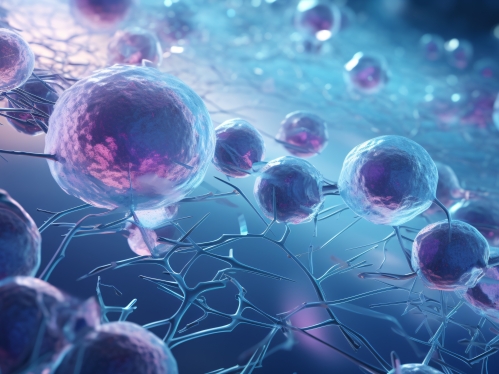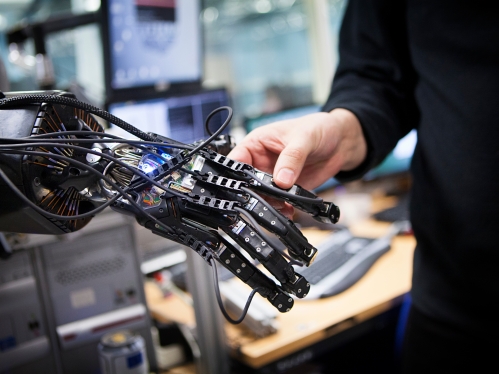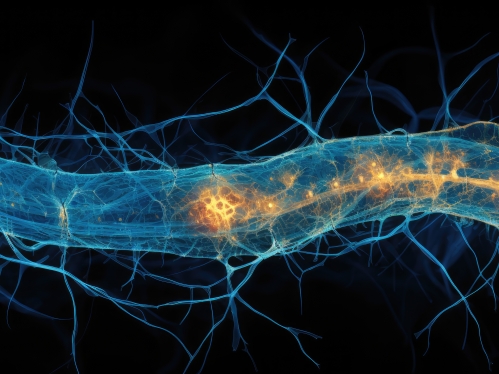
Biomedical Engineering Research
Research Areas of Focus
The Rutgers Department of Biomedical Engineering (BME) is a vibrant and dynamic enterprise of scholarship, learning, and technology development. BME offers a remarkably diverse array of opportunities for undergraduate, graduate, and postgraduate training and research.
Molecular, Cellular, and Biomaterials Engineering
Biomedical engineers are capitalizing on our advanced understanding of biological phenomena at the molecular and cellular scale, combined with advances in chemical synthesis and processing, to develop life-changing devices and therapies. Faculty in this research area perform studies on every scale, from developing a fundamental understanding of microscopic cellular phenomena to providing technological know-how for the scale-up of engineered cell therapies.

Biomechanics and Biofabrication
Building upon the tradition of human prosthetics that goes back 3,000 years, modern engineers and employing advanced biofabrication techniques and sophisticated computational models to develop structures at the cell, tissue, and organ scale with mechanical properties matched to intended function. Faculty in this research area pursue a wide range of applications from replacement ligaments to stronger dental enamel to improved understanding of acupuncture.

Biomedical Imaging and Instrumentation
Biomedical imaging is the cornerstone of diagnosis in disease and in health. Modern approaches seek to integrate high-end instrumentation with computational approaches from machine learning and artificial intelligence to non-invasively monitor biomarkers, identify pathological lesions, and monitor response to treatment.
Computational Bioengineering
Computational approaches from data science to machine learning to differential equation models of physiological processes are increasingly used as a complement to experimental measurements and as a surrogate where measurements are not practical. Rutgers researchers use these techniques to design biomaterials that can extend the useful life of therapeutic proteins, to predict safe and effective dosages for first-in-human studies, and to predict patient responses to pharmaceutical therapies.

Neuroengineering
Research in this area seeks ultimately to develop novel devices or new therapies that can enhance central and peripheral nerve regeneration, restore motor and sensory function, and transmit neural signals via brain-computer interfaces. Knowledge and approaches from the basic sciences are amplified by their integration with engineering tools from imaging, gene therapy, stem cells, and mathematical modeling.
